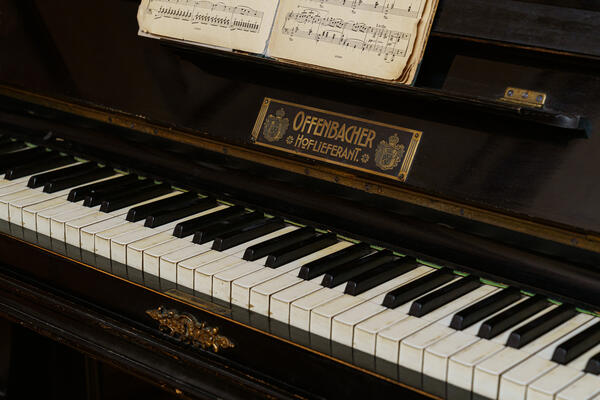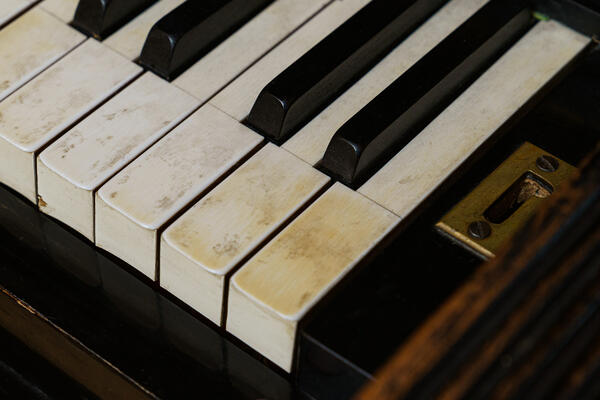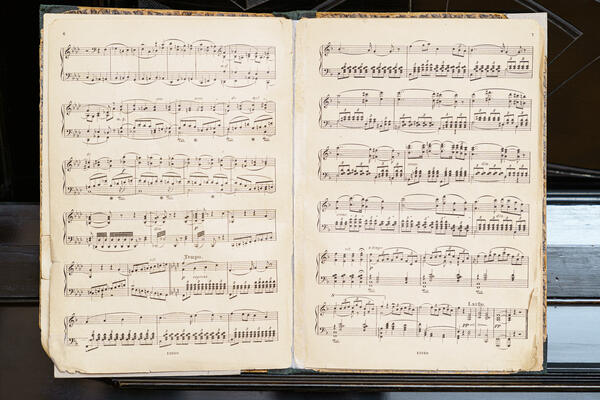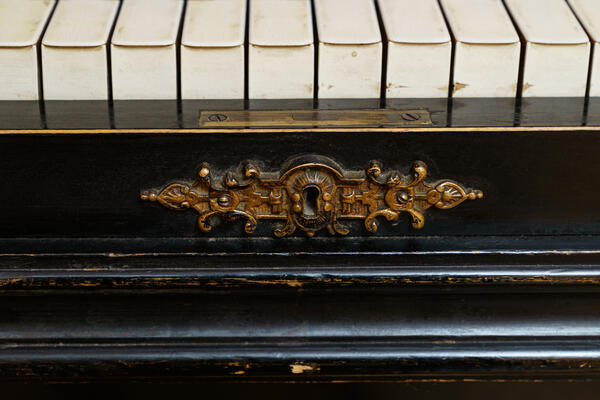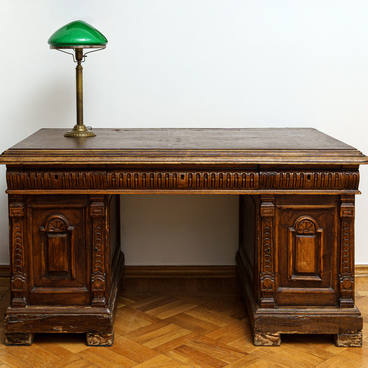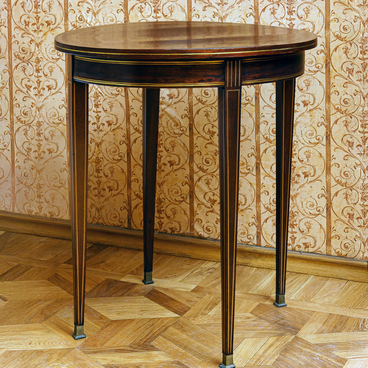From his early years, Mikhail Bulgakov had a connection with music: he grew up in a very musical family, where both adults and children played various instruments and loved to sing. One of Mikhail Bulgakov’s sisters, Varvara, studied piano at the Kyiv Conservatory, while his sister Vera was a member of the famous Alexander Koshetz Choir.
The violin, the instrument of Bulgakov’s father, and the piano often sounded in their house in Andrew’s Descent. In the summer, this massive musical instrument was moved to their country house for home concerts and performances. In one of those performances, 12-year-old Misha played a part of a leshy (a deity of the forests) and a robber chieftain.
In his youth, Mikhail Bulgakov, as his family recalled, saw the opera “Faust” 41 times and knew many arias from it by heart. The writer’s second most favorite opera was “Aida”, which he often mentions in his works: Professor Filipp Filippovich Preobrazhensky is going to see “Aida” in the story “The Heart of a Dog”; this opera is also remembered by the protagonist of “A Young Doctor’s Notebook” when moving from Moscow to a remote corner of the Smolensk Governorate. Mikhail Bulgakov took his fiancé Lyubov Belozerskaya to see “Aida”, and he played some pieces from “Faust” when he met her at an evening in January 1924.
“How many times have I heard M.A. humming this aria from ‘Aida’ — ‘Gods, pity my suffering…’ M.A. said, ‘It doesn’t matter at all whether the work was commissioned or originated on its own.’ ‘Aida’ is a commissioned opera, but it turned out great (Verdi wrote it by order of the Cairo Opera House). We went to see ‘Aida’ together at the Bolshoi Theater,” recalled the writer’s second wife Lyubov Belozerskaya.
In the 1920s, Mikhail Bulgakov lived in rented apartments. The piano reappeared in Bulgakov’s family only in 1934, when the writer acquired his own home in Nashchokinsky Lane. The instrument stood in the dining room that was combined with the living room.

